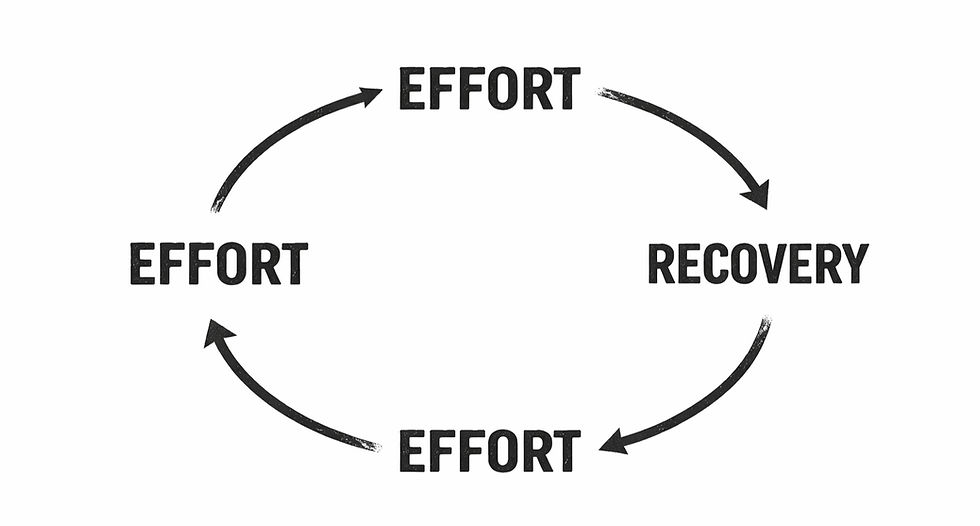The Gut-Brain Axis
- Lauren Lee
- Jun 12, 2025
- 3 min read
Updated: Jun 13, 2025
Welcome to today's newest blog where we'll be discussing recent growing research on the pivotal way in which gut microbiota influences mental health through a unique gut-brain connection. Then we will explore practical strategies on how to improve gut health!
Do you ever experience "butterflies" in your stomach when you get nervous? Or have you ever felt nauseous or completely sick to the stomach before a presentation? A performance? A test? Basically any situation that causes you to feel nervous, anxious, or stressed? Well, these physical reactions are not simply a coincidence. This universal reaction is something called the gut-brain connection.

What is the gut-brain connection?
The gut-brain connection, according to Harvard Medical School, is essentially
what links our anxiety to stomach problems. Specifically, the gastrointestinal tract, an integral passageway within the digestive system made of a series of hollow organs, is highly sensitive to emotion. This can explain why feelings such as stress, sadness, anxiety, anger (and others) tend to elicit various symptoms in the gut.
Our brains are not solely responsible for cognitive and regulatory processes. In fact, the brain directly impacts the stomach and intestines. If the brain is distressed, it sends signals to the gut. Similarly, a distressed intestine will send signals to the brain. This inherent connection between the brain and the gastrointestinal system is the reason why intestinal or stomach-related distress causes feelings of anxiety, depression, and stress.
As Johns Hopkins Medicine coined it, the digestive system is our "second brain". Scientists refer to this second brain as the Enteric Nervous System (ENS), which consists of two layers of millions of nerve cells lining the gastrointestinal tract (extending from the esophagus to the rectum). The ENS has the unique ability to communicate with the brain, thus triggering emotional shifts as a result of conditions associated with the gastrointestinal tract, such as IBS, or work in the opposite way by causing functional bowel problems (stomach pain, bloating, diarrhea, constipation, etc.).
Furthermore, novel findings have discovered a connection between individuals with IBS or functional bowel problems and the onset of anxiety or depression. In other words, irritation or distress in the gastrointestinal system sends signals to the CNS, or, Central Nervous System, ultimately provoking mood changes.
Along with the understanding of the ENS-CNS connection comes with the potentiality for clinical treatment or therapy. This can range from Cognitive Behavioral Therapy (CBT) to medical hypnotherapy. Such psychological interventions can possibly improve communication between the brain in our head and gut.
Body functions affected by the gut-brain connection:
Digestion
Metabolism
Mood
Behavior
Hunger & fullness
Stress
Cognition
Conditions, disorders, and symptoms associated with the gut-brain connection:
Anxiety
Depression
Irritable Bowel Syndrome (IBS)
Constipation or diarrhea
Noncardiac chest pain
Obesity
Dyspepsia
Dysphagia
Chronic stress, fatigue, or pain
Gastroparesis
How to care for your gut and brain health:
Adopt a probiotic and prebiotic-rich diet. If you're experiencing problems with your gut-brain health, it is crucial to first treat your gut microbiome. Having microbiota in your gut can relieve symptoms of gastrointestinal, emotional, and neurological stress. Probiotics are live bacteria found in fermented food such as yogurt, kimchi, sauerkraut, or kefir. Prebiotics are complex starches and fibers that bacteria eat.
Eat more fiber. Fibrous foods will maintain your bowel and feed the good microbiota in your gut that nourish the gut lining. Strawberries, chia seeds, cruciferous vegetables (lettuce, carrots, swiss chard), and kidney beans are examples of food with high fiber content.
Avoid anti-inflammatory foods. Consuming foods containing sugar, cholesterol, and additives will create inflammation in your stomach and will thus disrupt the brain. Instead, opting for a whole-food diet will improve your gut microbiome.





Comments